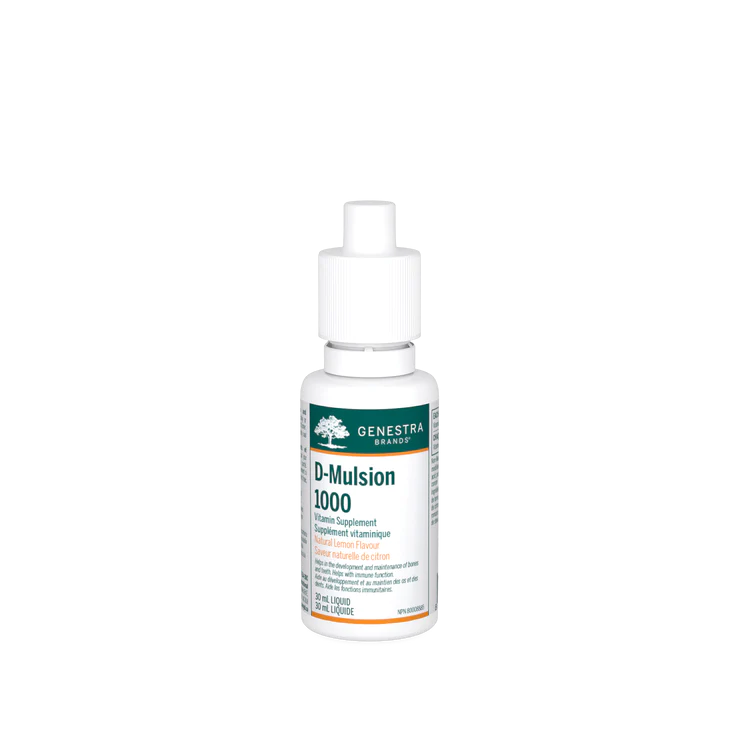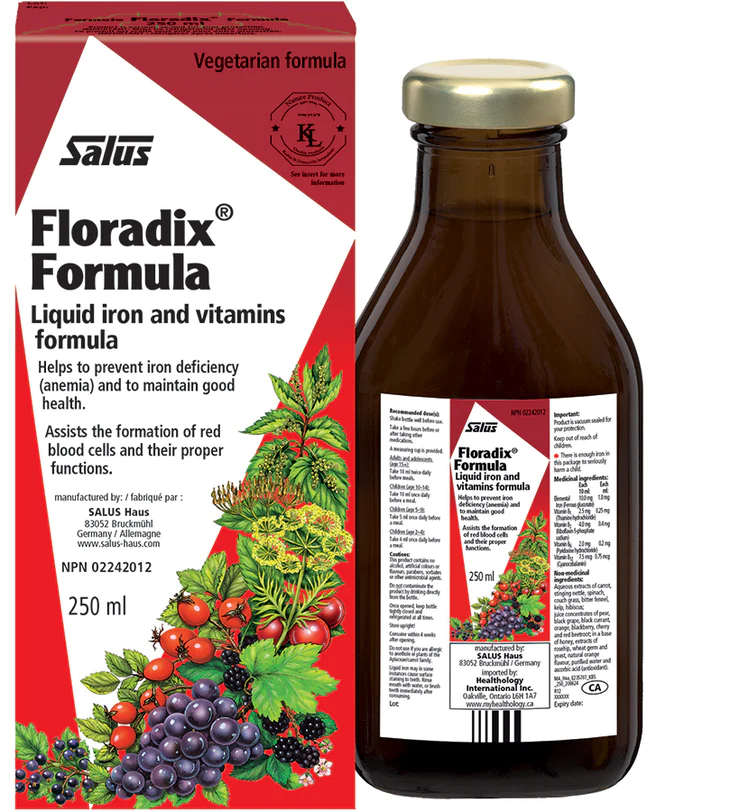Children's Chewable Vitamins
Supports tissue formation, normal growth and development throughout childhood
• An antioxidant and a factor in the maintenance of good health
• Helps to produce and repair connective tissue
• Aids in the development and maintenance of bones, cartilage, teeth, gums and night vision
• Delicious natural papaya and orange flavour
Children’s Chewable Vitamins provides a combination of vitamins and minerals that help support normal growth and development in children. Niacin, thiamine and biotin provide substrates for energy production in the Krebs cycle, while vitamins B6 and B12 and folate help convert homocysteine into methionine for protein synthesis.1 Approximately 50-60% of magnesium is found in bones, where it stimulates bone forming osteoblast activity and helps in the development and maintenance of bones and teeth.2 Vitamin D helps absorb and use calcium and phosphorus, which are required for normal bone mineralization.3 Daily supplementation with 400 IU of vitamin D helps support bone growth in young children.4 Vitamin C also contributes to the development and maintenance of bones and teeth through its role in collagen synthesis, the primary structural protein found in connective tissue.1 As collagen is also the main protein involved in wound healing, deficiencies in vitamin C may lead to impaired healing of wounds.5 Vitamin A helps maintain the natural barrier of the skin, stimulates immune cell development, and helps maintain eyesight and night vision.6-8 Low levels of vitamin A can affect iron metabolism, which is necessary for hemoglobin production and proper red blood cell activity.9
100 chewable tablets
References
1. Combs, GF. (2012). The Vitamins (4th ed.). USA: Elsevier.
2. de Baaij, JHF, Hoenderop, JGJ, Bindels, RJM. Physiol Rev. 2015; 95: 1-46.
3. Wranicz, J, Szostak-Wegierek, D. Rocz Panstw Zakl Hig. 2014; 65(3): 179-184.
4. Wagner, CL, Greer, FR. Pediatrics. 2008; 122(5): 1142-1152.
5. Campos, ACL, Groth, AK, Branco, AB. Current Opinion in Clinical Nutrition and Metabolic Care. 2008; 11: 281-288.
6. Mukherjee, S, Date, A, Patravale, V, Korting, HC, Roeder, A, Weindl, G. Clinical Interventions in Aging. 2006; 1(4): 327-348.
7. Ruhl, R. Proceedings of the Nutrition Society. 2007; 66: 458-469.
8. Al Tanoury, Z, Piskunov, A, Rochette-Egly, C. Journal of Lipid Research. 2013; 54: 1761-1775.
9. Oliveira, JM, Michelazzo, FB, Stefanello, J, Rondó, PHC. Nutrition Reviews. 2008; 66(3): 141-147.
Supports tissue formation, normal growth and development throughout childhood
• An antioxidant and a factor in the maintenance of good health
• Helps to produce and repair connective tissue
• Aids in the development and maintenance of bones, cartilage, teeth, gums and night vision
• Delicious natural papaya and orange flavour
Children’s Chewable Vitamins provides a combination of vitamins and minerals that help support normal growth and development in children. Niacin, thiamine and biotin provide substrates for energy production in the Krebs cycle, while vitamins B6 and B12 and folate help convert homocysteine into methionine for protein synthesis.1 Approximately 50-60% of magnesium is found in bones, where it stimulates bone forming osteoblast activity and helps in the development and maintenance of bones and teeth.2 Vitamin D helps absorb and use calcium and phosphorus, which are required for normal bone mineralization.3 Daily supplementation with 400 IU of vitamin D helps support bone growth in young children.4 Vitamin C also contributes to the development and maintenance of bones and teeth through its role in collagen synthesis, the primary structural protein found in connective tissue.1 As collagen is also the main protein involved in wound healing, deficiencies in vitamin C may lead to impaired healing of wounds.5 Vitamin A helps maintain the natural barrier of the skin, stimulates immune cell development, and helps maintain eyesight and night vision.6-8 Low levels of vitamin A can affect iron metabolism, which is necessary for hemoglobin production and proper red blood cell activity.9
100 chewable tablets
References
1. Combs, GF. (2012). The Vitamins (4th ed.). USA: Elsevier.
2. de Baaij, JHF, Hoenderop, JGJ, Bindels, RJM. Physiol Rev. 2015; 95: 1-46.
3. Wranicz, J, Szostak-Wegierek, D. Rocz Panstw Zakl Hig. 2014; 65(3): 179-184.
4. Wagner, CL, Greer, FR. Pediatrics. 2008; 122(5): 1142-1152.
5. Campos, ACL, Groth, AK, Branco, AB. Current Opinion in Clinical Nutrition and Metabolic Care. 2008; 11: 281-288.
6. Mukherjee, S, Date, A, Patravale, V, Korting, HC, Roeder, A, Weindl, G. Clinical Interventions in Aging. 2006; 1(4): 327-348.
7. Ruhl, R. Proceedings of the Nutrition Society. 2007; 66: 458-469.
8. Al Tanoury, Z, Piskunov, A, Rochette-Egly, C. Journal of Lipid Research. 2013; 54: 1761-1775.
9. Oliveira, JM, Michelazzo, FB, Stefanello, J, Rondó, PHC. Nutrition Reviews. 2008; 66(3): 141-147.
Supports tissue formation, normal growth and development throughout childhood
• An antioxidant and a factor in the maintenance of good health
• Helps to produce and repair connective tissue
• Aids in the development and maintenance of bones, cartilage, teeth, gums and night vision
• Delicious natural papaya and orange flavour
Children’s Chewable Vitamins provides a combination of vitamins and minerals that help support normal growth and development in children. Niacin, thiamine and biotin provide substrates for energy production in the Krebs cycle, while vitamins B6 and B12 and folate help convert homocysteine into methionine for protein synthesis.1 Approximately 50-60% of magnesium is found in bones, where it stimulates bone forming osteoblast activity and helps in the development and maintenance of bones and teeth.2 Vitamin D helps absorb and use calcium and phosphorus, which are required for normal bone mineralization.3 Daily supplementation with 400 IU of vitamin D helps support bone growth in young children.4 Vitamin C also contributes to the development and maintenance of bones and teeth through its role in collagen synthesis, the primary structural protein found in connective tissue.1 As collagen is also the main protein involved in wound healing, deficiencies in vitamin C may lead to impaired healing of wounds.5 Vitamin A helps maintain the natural barrier of the skin, stimulates immune cell development, and helps maintain eyesight and night vision.6-8 Low levels of vitamin A can affect iron metabolism, which is necessary for hemoglobin production and proper red blood cell activity.9
100 chewable tablets
References
1. Combs, GF. (2012). The Vitamins (4th ed.). USA: Elsevier.
2. de Baaij, JHF, Hoenderop, JGJ, Bindels, RJM. Physiol Rev. 2015; 95: 1-46.
3. Wranicz, J, Szostak-Wegierek, D. Rocz Panstw Zakl Hig. 2014; 65(3): 179-184.
4. Wagner, CL, Greer, FR. Pediatrics. 2008; 122(5): 1142-1152.
5. Campos, ACL, Groth, AK, Branco, AB. Current Opinion in Clinical Nutrition and Metabolic Care. 2008; 11: 281-288.
6. Mukherjee, S, Date, A, Patravale, V, Korting, HC, Roeder, A, Weindl, G. Clinical Interventions in Aging. 2006; 1(4): 327-348.
7. Ruhl, R. Proceedings of the Nutrition Society. 2007; 66: 458-469.
8. Al Tanoury, Z, Piskunov, A, Rochette-Egly, C. Journal of Lipid Research. 2013; 54: 1761-1775.
9. Oliveira, JM, Michelazzo, FB, Stefanello, J, Rondó, PHC. Nutrition Reviews. 2008; 66(3): 141-147.







